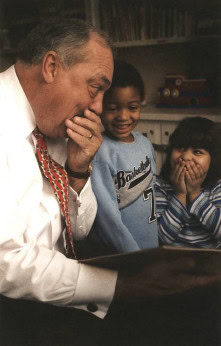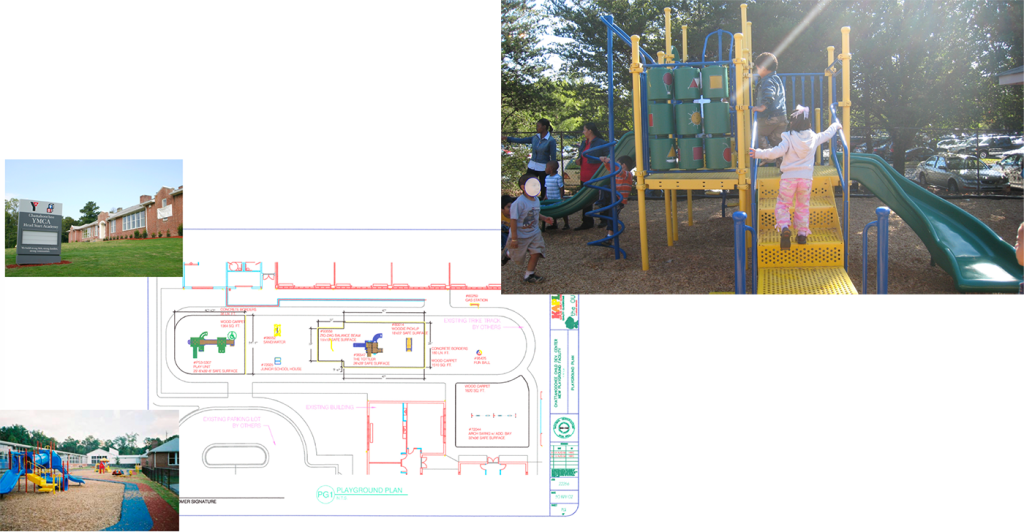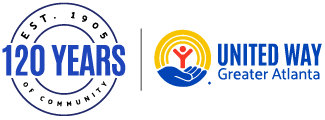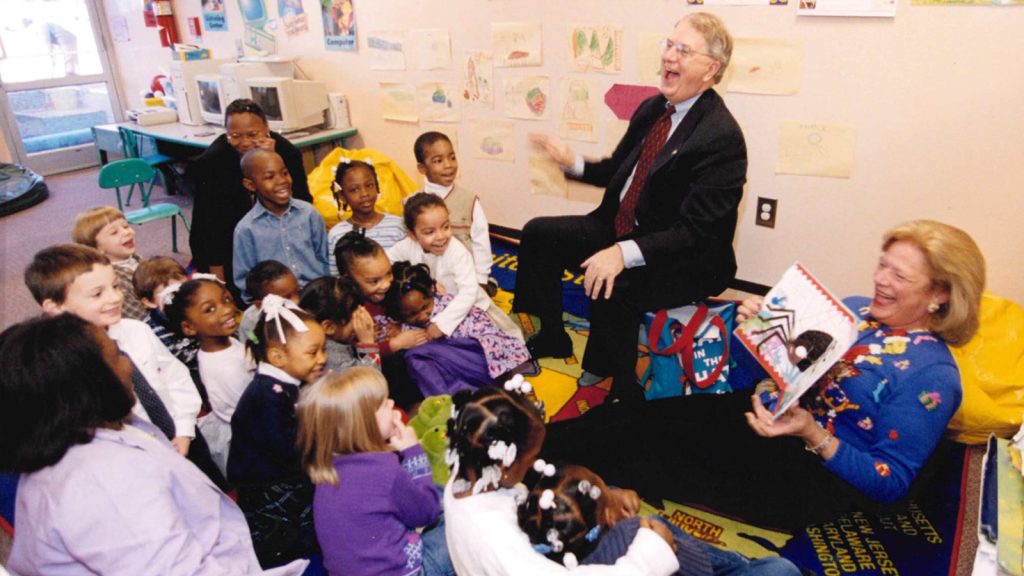In the 1990s, Greater Atlanta was rapidly transforming to greet the new millennium, and United Way of Greater Atlanta was evolving alongside it to meet the needs of our growing city in strategic, collaborative ways. Under the leadership of previous United Way of Greater Atlanta President Mark O’Connell, we surveyed Atlantans in 1995 to hear what their greatest desires were for the future of our city. One of the top priorities: access to affordable, quality preschool and childcare.
As it turned out, this issue was already top of mind for United Way and other philanthropic leaders.
“It was the early days of people beginning to understand that a good foundation for young children coming into kindergarten or first grade was essential, in terms of them being able to learn to read and continue to read on grade level,” recalled Phil Jacobs, then President of BellSouth Georgia, who would become the chair of our early learning movement at United Way. “At that time, in Georgia, basically anyone could run a childcare center as long as you could demonstrate that you were a safe environment. There were basically no other requirements.”
In the 1990s, Georgia ranked 42nd in the nation on access to pre-kindergarten and preschool education according to a study by the Annie E. Casey Foundation. Only 132 of the state’s 2,119 licensed childcare centers were accredited by NAEYC, the national standard for high-quality early learning center, while 63% of the state’s 550,000 preschool age children were being cared for at home or in informal settings.
“We saw that a lot of kids were showing up for school just hopelessly behind on day one. Not knowing their colors, not having any sense of the discipline required to succeed in school. They’d get behind immediately. We were trying to figure out how we might optimally invest in children in need, and particularly those children who may not grow up with the benefit of a nurturing, functioning family environment,” said Russell Hardin of the Joseph B. Whitehead Foundation, one of our earliest partners in the early learning initiative work.
A groundbreaking public-private partnership emerges
In 1999, a powerful team of United Way leaders and our corporate and foundation partners approached Governor Roy Barnes to discuss the state of early learning in Georgia, including Mark O’Connell, Russell Hardin, Phil Jacobs, Spelman President Dr. Johnetta B. Cole, and Oz Nelson, the CEO of UPS. After hearing their presentation, Governor Barnes asked if United Way needed money. Mark replied that what was needed more was partnership. The Governor agreed and asked the team to come up with a policy agenda that could accomplish the changes needed to better prepare young leaders for school.
That same year, the Georgia Early Learning Initiative (GELI) was born. Then COO Bill Garrett led the way from within United Way, and Phil Jacobs was tapped to chair the statewide initiative. The team hosted 20 listening sessions with nonprofit childcare providers, for-profit day cares, state regulators, parents, and issues advocates.

They quickly discovered that Georgia didn’t lack early learning centers—it lacked affordability and consistent quality. Many families simply couldn’t afford care, and the standards of education varied widely from one provider to the next.
One standout exception was Sheltering Arms, a long-time United Way partner. As one of the few NAEYC-accredited centers in the state, it became a model for what we dreamed high-quality early learning centers could look like. But how could more centers reach that level of excellence without passing on the costs to the families enrolled?
>> RELATED: United Way partners with Sheltering Arms to improve well-being
GELI’s agenda first introduced the idea of Quality Rated, a tiered reimbursement quality rating scale, a system that increased per-child funding to preschools that met higher quality standards. By leveraging existing federal funds earmarked for subsidized childcare, this approach incentivized programs that best prepared kids to thrive in school.
“Quality Rated put guidelines and standards in place for childcare providers to understand what needed to happen within the classroom and within their center. But it also gave parents in a community a guiding star to know what to look for when searching for programs for their children. That was a game changer for our state because you began to see a professionalization of the field,” explained Cori Dickens-Cain, Associate VP of Early Learning at United Way.
This tiered quality system was adopted on July 1, 2002. By early 2003, 58 childcare centers enrolled in the system, which lowered daycare costs for 2,489 children and increased the quality of learning of every child enrolled.
A lasting movement to improve early learning in Georgia
GELI’s momentum extended beyond just legislation. What began as a policy agenda created a lasting movement to improve the early learning and early childcare field for everyone involved.
“There was an effort to say, how do we recruit and retain childcare people into facilities across the state?” said Phil. “That was not easy because they didn’t pay as well as teaching jobs, but in many cases, we wanted to see the same kind of credentials.”
We partnered with the Whitehead Foundation for capital improvements and new construction for quality childcare centers, and we also provided professional development opportunities and retention bonuses for teachers.

>> RELATED: Two new Learning Spaces sites welcome little learners and their caregivers
GELI was gaining momentum, and ideas for replication in other states were underway.
In 2002, Governor Barnes lost his bid for reelection. Under Governor Sonny Purdue, the program was rebranded as “Smart Start,” and its focus and United Way involvement shifted.
However, the program led the way towards additional initiatives. In 2008, United Way of Greater Atlanta used what it had found in early childhood education to convene the wider business community to answer the overall question of how students can enter school ready to succeed, starting the Early Education Commission, now known as GEEARS.
“As a result of those programs, we are where we are today. We redefined what early learning was in Georgia,” said Phil Jacobs.
GELI’s impact continues to shape the landscape of early learning in Georgia to this day. The quality rating framework the original team helped codify into state law is still used through the DECAL program. It gives parents a clear view into the quality of their child’s early education and helps ensure that high-quality experiences remain affordable for families.
Putting early learning—and brighter futures—in reach
United Way continues Smart Start programs to put early learning in reach with the partnership of the Whitehead Foundation. In communities of greatest need, the thread of our mission remains the same as when GELI first started 25 years ago. From providing professional development that helps early learning teachers understand the science of early learning education, to providing childcare scholarships to families, to funding capital improvements for childcare centers, we’re helping more children in Greater Atlanta enter school ready to succeed.
Before a child even steps into their first kindergarten classroom, the first five years are critical in shaping a child’s future. That’s why, throughout our history and into the future, we’re committed to building on the legacy of GELI and expanding access to early learning opportunities for every child. Join us in building the future of early learning by donating today—your support can make all the difference.

